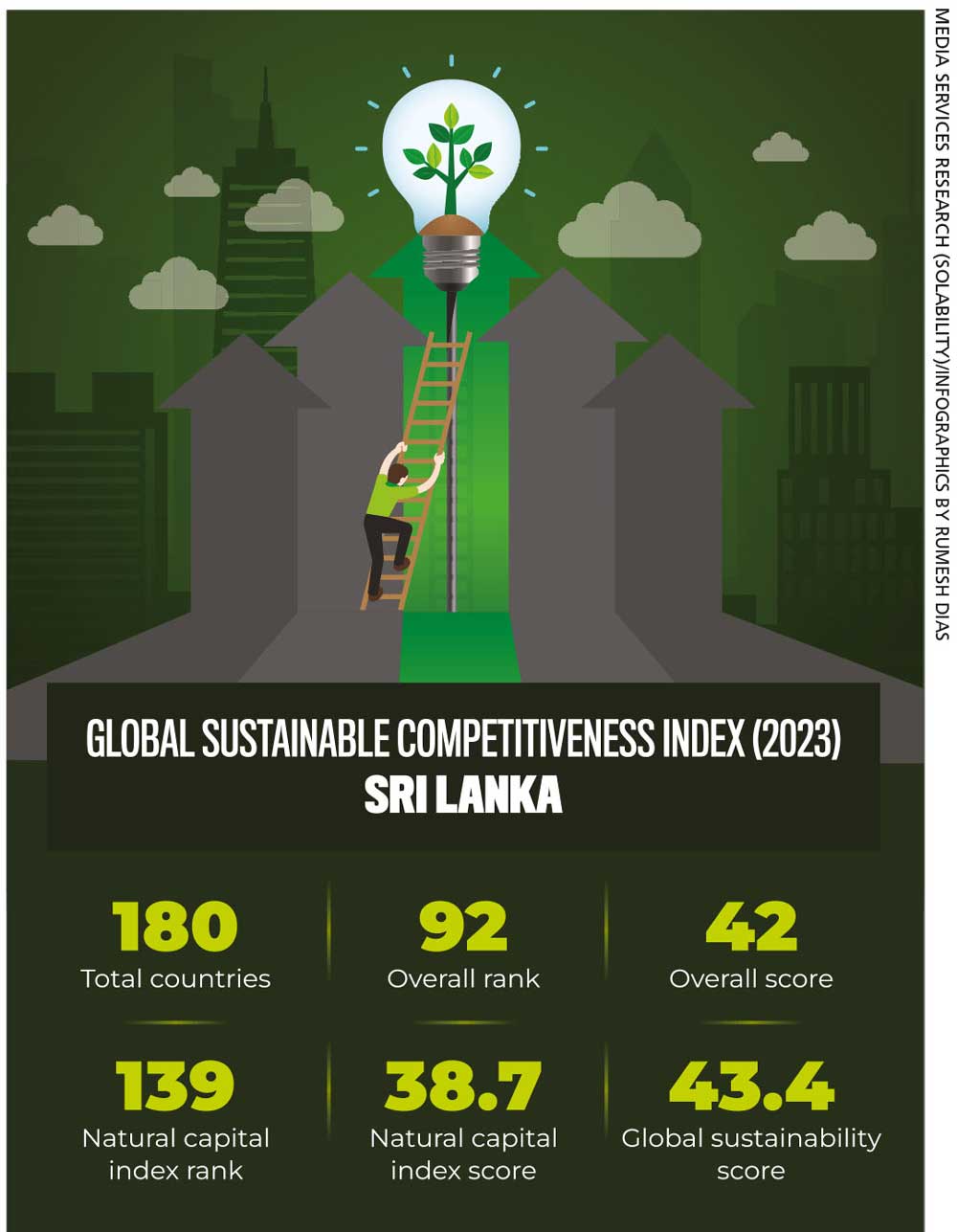AGENTS OF CHANGE
SUSTAINABLE ENTREPRENEURS
Enterprises that are vital for economies – Kiran Dhanapala
Sustainable entrepreneurship is vital to any economy. But these entrepreneurs are often in the invisible or informal sectors, and they face many challenges. They have the potential to strengthen emerging economies, alleviate poverty and create new skilled jobs while protecting the environment, and promoting just and fair economies.
Though they play a vital role in a net zero economy, these businesses face barriers including a lack of knowledge, limited time, and no guidance on implementing and reporting on sustainability in their decarbonisation journey.
These entrepreneurs are focussing on activities that will realise the UN’s Sustainable Development Goals (SDGs) by providing sustainable goods and services.
Cofounder of change agency Futerra Solitaire Townsend describes these change makers as ‘solutionists.’ They’re part entrepreneur and part activist; and they focus on solving social, environmental, economic and/or governance-related problems that affect society.
At the core of the solutionists is a focus on problem solving. They are driven by how their products or services will solve particular problems in the world. This spans various spheres such as energy, infrastructure, food, finance, culture and so on.
Technologies exist as solutions and policies that are needed are known. But much needs to be done to implement anything. This generally means communicating possible solutions so scriptwriters, artists and content creators on social media play a part in creating these stories.
Solutionists have a long-term vision and will ensure there’s a narrative to the business impact they wish to create, as well as an ROI. Key leadership qualities include grit, tenacity, flexibility and adaptability, and a determination to achieve goals. Solutionists also have the ability to focus on the big picture.
The Global Sustainable Competitiveness Index (GSCI) measures sustainable competitiveness. It uses reliable data for 190 quantitative indicators across six sub-indexes – viz. natural capital, resource efficiency and intensity, social cohesion, intellectual capital, economic sustainability and governance efficiency.
Top ranking countries are mostly European except for Japan (12th). For the first time, the US (32nd) was overtaken by China (30th) in 2022. Sri Lanka ranks 92nd (scoring 42 out of 100), just behind Rwanda (42.2).
The global average sustainable competitiveness score is 43.5 with the highest being Sweden (59.8). Progress is needed with only 52 percent of indicators showing positive developments.
Sustainable competitiveness requires high R&D capabilities, a good educational foundation and business entrepreneurship. There needs to be a balance between the services and manufacturing sectors without an over-reliance on the former.
The global average of the Intellectual Capital Index is 40 with a perfect world being 60. High scorers are more likely to develop research and knowledge driven (high value added) industries, and achieve higher growth.
There is a large variation between low and high performing scores.
Sri Lanka ranks 102nd with a score of 33.9 along with China in third place, the US is seventh, India 89th (36.7), Nepal No. 98 (35.1), Burma 84th (37.4), the Maldives 132nd (27.9) and Pakistan No. 161 (22.2).
Solutionists need support to move from the technical stage to policy levels. There should be enabling regulations and investments in educating policy makers on the definition of sustainable entrepreneurship. This could be included in the ‘Green Taxonomy’ of the Central Bank of Sri Lanka.
These entrepreneurs need to be recognised as a particular group that develops specific products and mechanisms. And the gaps and needs faced by the group need to be identified, so that an ecosystem of support and connective infrastructure can be established.
Meanwhile, solutionists need to learn about the circular economy and systems, sustainable procurement practices and marketing, information systems on niche export markets, scaling up and so on.
National plans and specific legislation are required for sustainable entrepreneurship. Solutionists should be clustered so they’re more visible when seeking funding and customers. And there needs to be more financing along thematic lines for these clusters.
There are many different groups working with solutionists in Sri Lanka. Good Life X champions the shift from extractive and linear, to a regenerative and circular economy. Lanka Social Ventures promotes and supports entrepreneurship and innovation, for social change and environmental sustainability.
They support entrepreneurial and innovative individuals, groups, community organisations and SMEs, to help them succeed and become financially sustainable social enterprises.
The Good Market is a global platform for social enterprises, cooperatives, responsible businesses and change makers. It has specific criteria for enterprises to be approved as vendors for market access.





